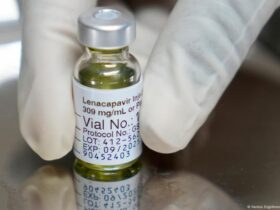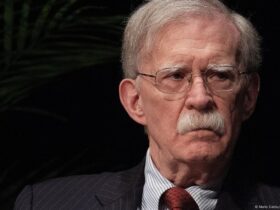EU Commission President Ursula von der Leyen had a busy schedule as she visited the western Balkan states of Albania, Montenegro, Bosnia and Herzegovina, Serbia, Kosovo and North Macedonia this week, all within the span of three days.
She has been to this area several times before, most recently in 2024. All six Western Balkan states are expected to join the EU, although it is unclear when this might happen. Croatia was the last country to join the group in 2013.
Countries in the region are working toward this goal at different paces: for example, Montenegro is considered to have a good chance of joining the EU soon, but things look less promising for Serbia due to its pro-Russian politics and increasingly authoritarian government.
Serbians have been staging almost non-stop protests against the government of President Aleksandar Vucic since the roof of a train station in Novi Sad, northern Serbia, collapsed in November 2024, killing 15 people and injuring another person in 2025. The Serbian opposition and protesters are demanding fresh elections, although Vucic has rejected this demand and has allowed security forces to brutally crack down on demonstrations.
This is one reason why the European Green Party (EGP) rejected von der Leyen’s visit to Serbia as “completely inappropriate and politically misguided”. The Party of European Socialists (PES) called on them to “condemn Vucic’s repression and support the call for fresh elections by students and the opposition”.
many civil society organizations including Reporters Without Bordershas also urged von der Leyen to draw attention to the problems of press freedom in Serbia. Critics have repeatedly accused the EU of being too generous towards Vucic.
Serbia urged to implement reforms
Yet, during this visit to Serbia, von der Leyen minced no words. At a press conference on 15 October, he told reporters that “Now is the time for Serbia to take concrete steps about joining our union,” adding that “we need to see progress on the rule of law, electoral framework and media freedom.”
Nikolaos Tzifakis, professor of international relations at the College of Europe and an expert on the Western Balkans, says von der Leyen’s decision to address these issues and publicly criticize Serbia’s democratic failings may strengthen the EU’s position.
“If the EU rewards consistent progress and imposes sanctions on stagnation or setbacks, it would have a significant impact on political reforms in the region,” the expert told DW.
He argued that if the EU pursues a policy of appeasement towards pro-Russian actors, it is jeopardizing its influence and undermining the confidence of pro-European forces.
Von der Leyen also urged Serbia to join EU sanctions against Russia, even though President Vucic met with his Russian counterpart Vladimir Putin in September. Von der Leyen said Serbia has aligned its foreign policy more closely with the EU in some respects, but more needs to be done.
Montenegro leads by example
A day before her visit to Montenegro revealed how much progress other countries in the region have already made toward EU membership, von der Leyen praised Montenegro for being “fully engaged with the EU’s foreign and security policy.”
“You are, without question, at the forefront of the accession process”, he said, with the real possibility of joining the EU by 2028.
Nina Vujanovic, a fellow at the Brussels-based Bruegel think tank, told DW that her visit to Montenegro was “more focused on investments rather than reforms”. For example, Montenegro’s recent accession to the European SEPA payments area with Albania and North Macedonia will help grow its economy.
Vujnovic says von der Leyen attempted to boost foreign direct investment, or FDI, in the region during her visit, even though it is already comparatively high. According to the OECD, FDI to the Western Balkans averaged 6.4% of GDP between 2020 and 2023. This is more than four times the EU average of 1.5%.
The EU’s plan for the Western Balkans aims to further boost economic growth. The funding worth €6 billion ($7 billion) will be made available by 2027 to help double the region’s GDP over the next 10 years.
Economic integration and geopolitics
Vujanovic told DW that while much of her visit focused on advancing economic integration, von der Leyen also called for political reforms.
“The Western Balkans region is very diverse, and this is reflected in the way they address decision makers [about reforms] In different countries,” Vujanovic said.
Von der Leyen called for greater political stability not only in Serbia, but also in Kosovo and Bosnia and Herzegovina.
Political analyst Tzifakis says the situation in Kosovo, as well as Bosnia and Herzegovina, poses a foreign policy challenge for the EU, as nationalist divisions and conflicts open up opportunities for Russia to increase influence. Potential EU accession is therefore motivated by “geopolitical considerations”.
Yet accession candidates should be under no illusions that the EU will bend over backwards to accept them, Tzifakis concluded. “While the EU is committed to accelerating the enlargement process, it is not prepared to lower access criteria.”
This article was translated from German,






Leave a Reply